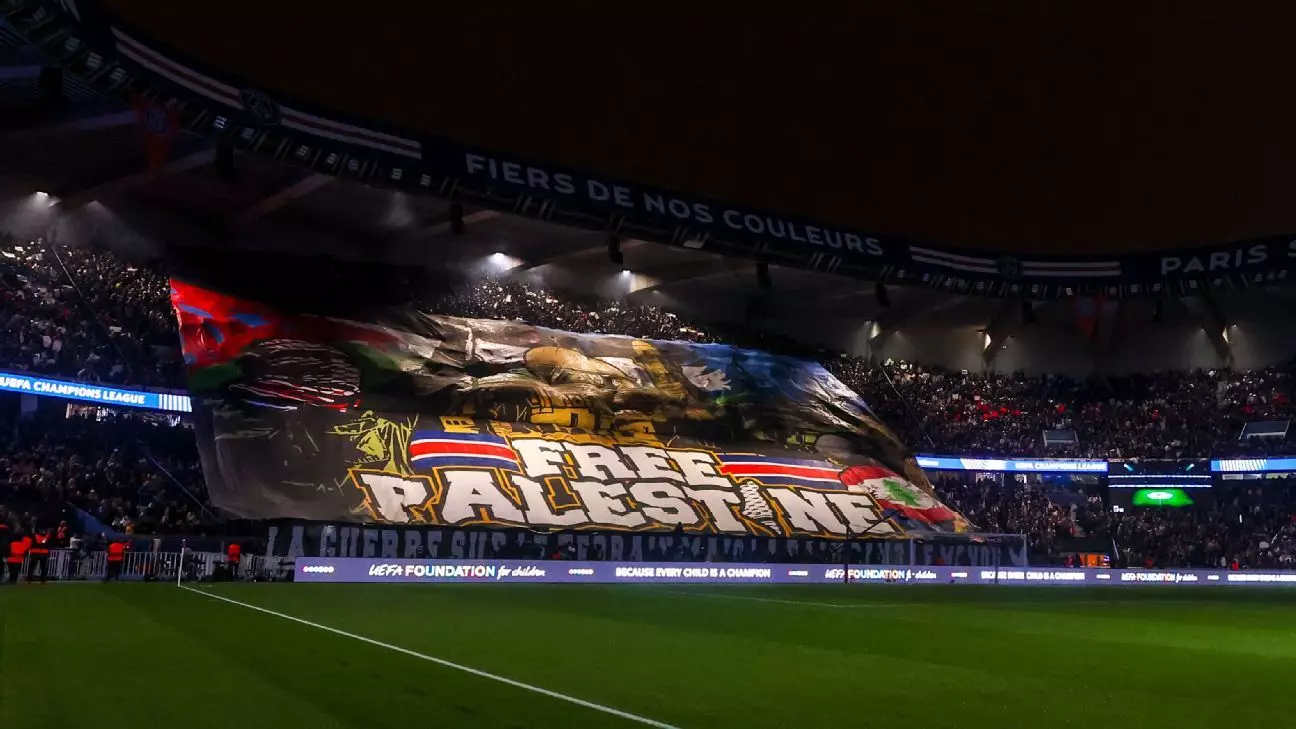Recent events surrounding Paris Saint-Germain (PSG) have highlighted a recurring theme in football: the intersection of sports and politics. During a high-stakes Champions League match against Atlético Madrid, fans from PSG’s Auteuil Kop unveiled a large “Free Palestine” banner, drawing attention to the ongoing humanitarian crisis in Gaza. This act of political expression in a sporting context raises significant questions about the role of sports as a platform for activism and the responsibilities of sporting institutions when faced with such displays.
The timing of the banner’s display was particularly provocative, coinciding with the impending Nations League game between France and Israel. The accompanying message, “War on the pitch, but peace in the world,” encapsulated a plea for empathy in the face of conflict, suggesting that humanity transcends the boundaries of sport. This demonstration not only resonated within the stadium but also reverberated beyond, fueling discussions about the political ramifications of sporting events. It pushes spectators to consider whether the sporting arena should be a space for such declarations or strictly a venue for athletic competition.
PSG’s Official Stance and Public Backlash
In response to the banner, PSG’s management distanced themselves from the political statement, asserting they were unaware of any plans for such a demonstration. The club emphasized its position that the Parc des Princes should be a location focused on unifying fans through their shared passion for soccer, outright rejecting any political messaging within its confines. This reaction underscores an important tension faced by sports organizations: maintaining a neutral stance while managing the passionate views of their supporters.
Furthermore, French Interior Minister Bruno Retailleau condemned the display, labeling it “unacceptable” and hinting at possible sanctions against PSG. This backlash highlights the delicate balance between freedom of expression and the potential repercussions of making political statements in public spaces, particularly when they touch on sensitive international issues.
Historically, sporting events have often served as backdrops for political statements. The banning of Palestinian flags at sporting events, as evidenced by Celtic’s fine for similar expressions, illustrates the contentious nature of such displays. Critics argue that suppressing political expression in sports risks ignoring significant global issues, while supporters of strict neutrality contend that sports should remain separate from political discourse to preserve unity among diverse fan bases.
As France prepares for its upcoming match against Israel, concerns about security and community tensions have emerged. With the largest Jewish and Muslim populations in Europe converging upon the Stade de France, the stakes are high. This situation necessitates careful consideration of not only the political climate but also the emotional sentiments of fans from various backgrounds.
The incident involving PSG’s fans shines a light on the complex relationship between sports, society, and politics. It compels us to question the role of sports organizations in mediating these discussions and the extent to which fans should be free to express political beliefs in the stadium. As sporting events continue to foster diverse populations, the challenge remains: how to navigate these complex waters without alienating segments of the fan base or ignoring pressing societal issues.

Leave a Reply